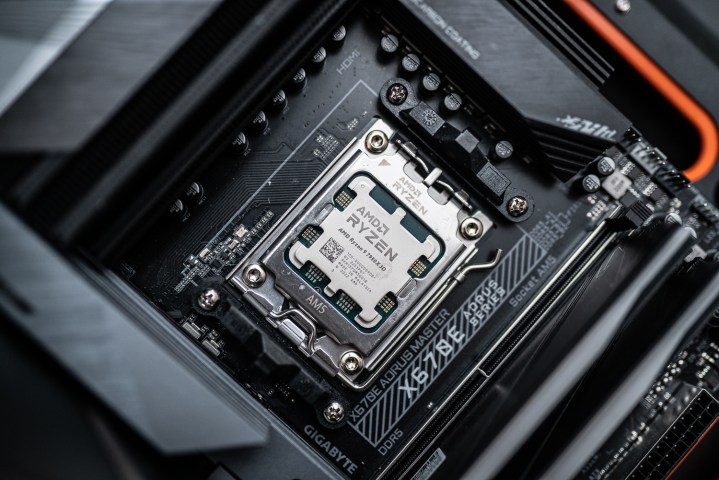
We already knew that AMD would launch its Zen 5 CPUs this year, but recent motherboard updates hint that a release is imminent. Both MSI and Asus have released updates for their 600-series motherboards that explicitly add support for “next-generation AMD Ryzen processors,” setting the stage for AMD’s next-gen CPUs.
This saga started a few days ago when hardware leaker 9550pro spotted an MSI BIOS update, which they shared on X (formerly Twitter). Since then, Asus has followed suit with BIOS updates of its own featuring a new AMD Generic Encapsulated Software Architecture (AGESA) — the firmware responsible for starting the CPU — that brings support for next-gen CPUs (spotted by VideoCardz).
MSI Simple and clear.👏
FireRangePi 1.1.7.0 Patch Ahttps://t.co/f2TD2nOg7X pic.twitter.com/K7aI1hzIVa
— HXL (@9550pro) April 13, 2024
There isn’t much reason for Asus and MSI to play coy about next-gen AMD CPUs. AMD itself confirmed that it would launch Zen 5 CPUs in the second half of this year, with the company sharing the release date window details during an earnings call. Still, we expected the CPUs late in the year. At the beginning of the year, hardware leakers claimed AMD was targeting the last few months of 2024.
Will Zen 5 launch at Computex?

Although motherboard brands want to get BIOS updates out early, it’s hard to imagine they’d arrive more than half a year before the Zen 5 CPUs launch. With the updates already available for a couple of major motherboard brands, there’s a good chance AMD plans to launch its Zen 5 CPUs within the next couple of months.
That would make sense, too. We’re gearing up for Computex, which kicks off at the beginning of June in Taipei, Taiwan. AMD CEO Lisa Su is set to deliver the opening keynote of Computex, which would be the perfect stage to launch a new generation of CPUs. Two years ago, at Computex 2022, AMD introduced its Zen 4 CPUs.
As for what we can expect with Zen 5 CPUs, AMD has confirmed the initial chips will use a 4nm process. Leakers say that the flagship chip will sport 16 Zen 5 cores, which lines up with the core counts of the last two generations of AMD chips. As these motherboard updates confirm, the chips will use the AM5 socket, making them compatible with motherboards currently on the market.
Intel, for its part, is expected to launch its Arrow Lake CPUs sometime between the end of 2024 and early 2025. With both AMD and Intel set to launch new generations touting entirely new architectures, the competitive market of high-performance CPUs is heating up.




